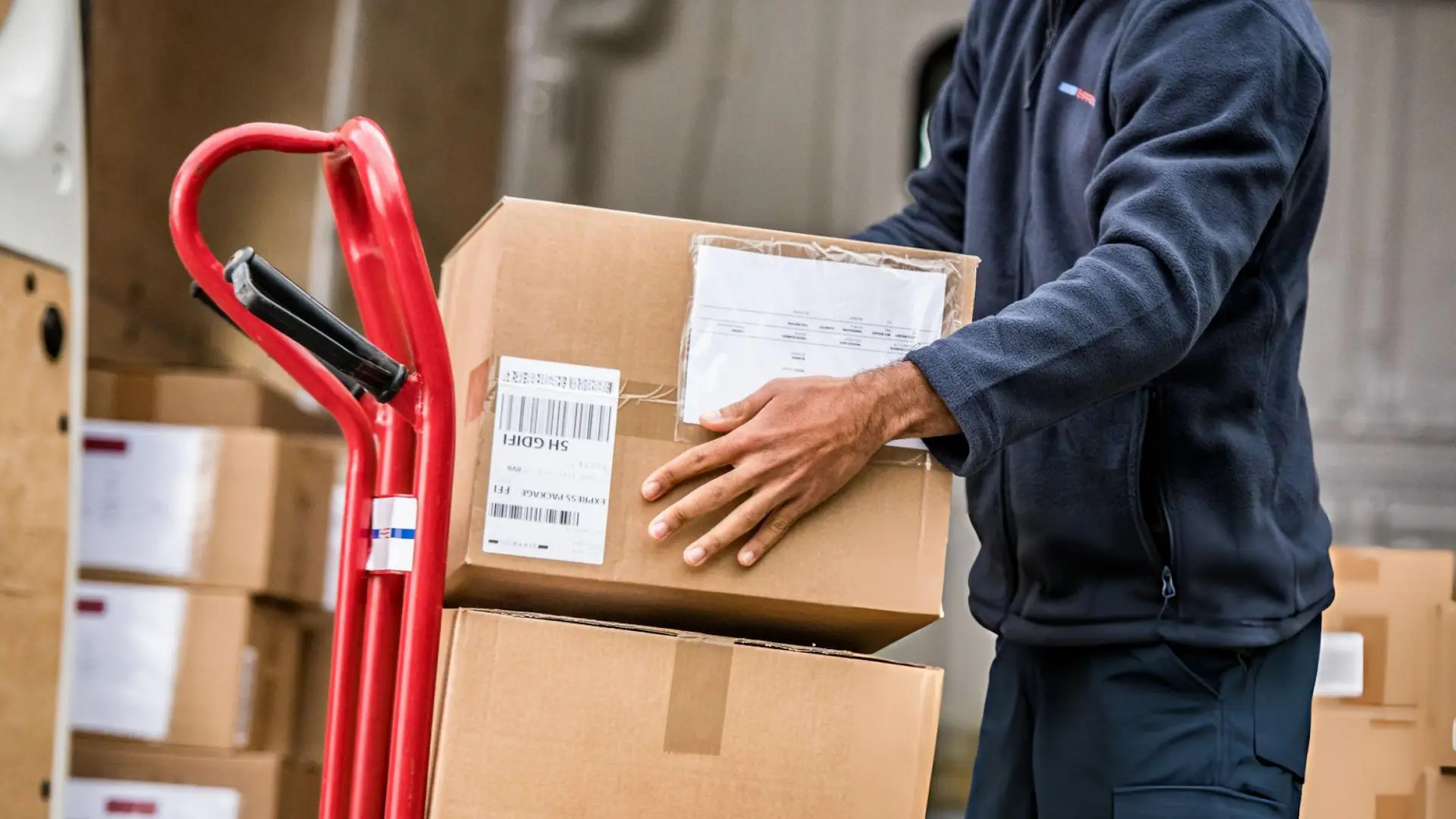Ultimate First Class Mail Guide
.webp)
Whether you're sending a birthday card to a loved one or mailing important documents, understanding First Class Mail is essential. This service, offered by the United States Postal Service (USPS), is not only cost-effective but also reliable. Our guide will help you navigate the basics of First Class Mail, ensuring your mail reaches its destination safely and on time.
What Is First Class Mail?
First Class Mail is a premium mailing service offered by the United States Postal Service (USPS) that ensures prompt delivery of letters, postcards, and small packages. Known for its cost-effectiveness and reliability, it typically delivers items within 1 to 3 business days. This service is particularly suitable for lightweight, standard-sized envelopes and packages weighing up to 13 ounces. With tracking options and optional insurance, First Class Mail provides peace of mind for both personal and business correspondence, making it an ideal choice for everyday mailing needs.
Understanding First Class Mail
First Class Mail is synonymous with affordability and reliability. Ideal for sending birthday cards, invoices, or legal documents, it ensures that your mail not only reaches safely but also economically. Here's what makes First Class Mail a preferred option:
- Cost-Effective Rates: Enjoy lower costs for sending letters and small packages.
- Timely Delivery: Expected delivery ranges from 1 to 3 business days.
- Versatility: Suitable for both personal and business mail.
Understanding the nuances of this service will help you make the most of its offerings, ensuring your mail reaches its destination efficiently.
Different Types of First Class Services
The USPS offers various First Class services to accommodate different mailing needs. Each type ensures reliable and timely delivery while providing distinct features suited to specific requirements. Here are the different types of First Class services available:
- First Class Mail Letters: Ideal for sending standard-sized envelopes and postcards up to 3.5 ounces.
- First Class Mail Flats/Large Envelopes: Designed for larger documents like magazines, legal papers, and booklets up to 13 ounces.
- First Class Mail Parcels: Perfect for small packages weighing up to 13 ounces, offering tracking and delivery confirmation.
- First Class Package Service – Retail: Provides convenient shipping for lightweight parcels with tracking and a slightly higher rate for in-person retail shipping.
First Class vs Priority Mail: Choosing the Right Service
Deciding between First Class and Priority Mail often comes down to the specifics of what you're sending and how quickly you need it delivered:
- First Class Mail: Best for lightweight items, it's the economical choice for standard-sized envelopes and small packages, typically delivered within 1-3 days.
- Priority Mail: Offers faster delivery and includes flat rate shipping options, suitable for slightly heavier items needing quicker delivery.
Tracking and Security Features of First Class Mail
Tracking is a significant feature of First Class Mail, providing peace of mind by allowing you to follow your mail's journey:
- Detailed Tracking: Track your shipment from departure to arrival.
- Optional Insurance: Available for added security against loss or damage.
What to Expect: First Class Mail Delivery Times
A crucial aspect of sending mail is understanding delivery timelines, which is particularly important when your shipment needs to arrive by a certain date. First Class Mail is a reliable service, but it helps to have a clear understanding of how different factors affect delivery.
Standard Delivery
First Class Mail typically promises delivery within 1 to 3 business days, and many customers often receive their mail within this timeframe. Here are some important points to consider:
- Proximity Matters: The geographical distance between the origin and destination largely determines the specific number of days required for delivery. Local and regional deliveries are often quicker, while cross-country routes may require closer to the three-day limit.
- Internal Processing Times: The internal sorting and processing times at USPS facilities also play a role. A well-prepared mailing with accurate addresses and proper postage can expedite this process.
- Urban vs. Rural Areas: Urban areas typically have a more extensive and efficient delivery network compared to rural locations, potentially leading to quicker delivery times.
Factors Affecting Delivery
While the delivery timeframe is generally consistent, several factors can occasionally cause delays:
- Weather Conditions: Extreme weather events, such as hurricanes, snowstorms, or floods, can disrupt transportation routes and cause unexpected delays. The USPS frequently issues service alerts during severe weather conditions.
- Holidays and Peak Periods: National holidays, particularly around peak mailing seasons like Christmas, tend to slow down deliveries due to high volumes. Plan ahead by mailing early to avoid holiday rush periods.
- Operational Delays: Internal USPS facility issues, such as technical breakdowns or labor shortages, can lead to temporary backlogs that impact delivery timelines. These are generally infrequent but worth considering.
- Incorrect or Incomplete Addresses: An improperly addressed package can be delayed or even returned to the sender. Always double-check that your addresses are accurate and complete.
- International Considerations: For First Class Mail International services, customs procedures and local postal service efficiency may affect delivery times.
Special Services Offered by USPS for First Class Mail
The USPS continually updates its offerings to enhance customer experience with First Class Mail:
- Enhanced Tracking Capabilities: Keeping you informed at every step.
- Eco-Friendly Packaging: Innovations in sustainable packaging solutions.
Conclusion
First Class Mail remains a cost-effective and dependable choice for personal and business correspondence, ensuring prompt delivery of letters, documents, and lightweight packages. With its flexibility, tracking options, and various service types, it caters to a wide range of mailing needs. By understanding its delivery times and the factors affecting them, you can better plan your shipments and set realistic expectations.
For ecommerce brands seeking efficient and cost-effective mailing solutions, reach out to Atomix Logistics to learn more about how First Class Mail can support your business. With negotiated rates and a strong partnership with the USPS, Atomix provides comprehensive services tailored to your logistical requirements. Reach out to us today!
FAQs About First Class Mail
What is First Class Mail?
First Class Mail is a USPS service for delivering letters, postcards, and small packages within the United States, typically within 1 to 3 business days.
How do I track my First Class Mail?
You can track your First Class Mail by using the tracking number provided at the time of shipment. Enter this number on the USPS website to monitor your mail's progress.
Can I send packages using First Class Mail?
Yes, First Class Mail can be used for small packages weighing up to 13 ounces. This service is ideal for small, lightweight items.
What is the difference between First Class Mail and Priority Mail?
The main differences are delivery time and cost. First Class Mail is cheaper but slower compared to Priority Mail, which provides faster delivery and flat rate shipping options for heavier packages.
How reliable is First Class Mail for important documents?
First Class Mail is highly reliable for sending important documents. Optional insurance and tracking services further secure and monitor the delivery of sensitive items.

.svg)
.svg)
.svg)




